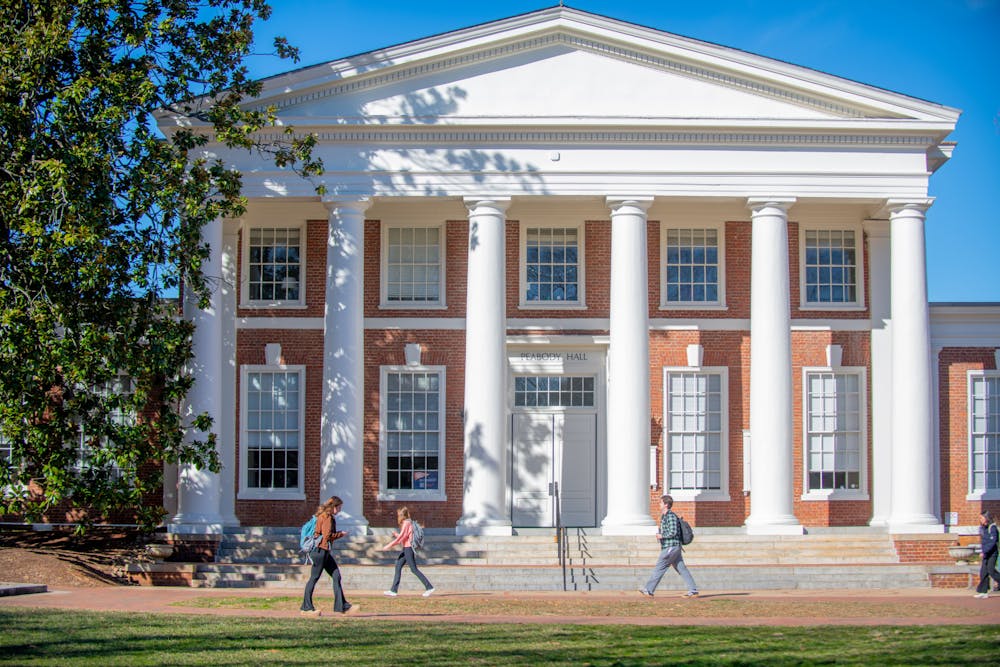The Virginia House of Delegates voted unanimously to end consideration of applicants’ legacy status in applications to the Commonwealth’s state schools Jan. 30, following another unanimous vote on an identical bill in the Virginia Senate the week prior. The legislation, which would end the longstanding practice of favoring applicants who are related to one or more alumni of state universities, is expected to be signed by Gov. Glenn Youngkin.
The legislation follows a Supreme Court ruling in June that ended the practice of race-based affirmative action in college admissions. In response, the University revised their applications to remove direct questions about the applicant’s race, ethnicity and legacy status. While applicants could previously indicate their legacy status by checking a box on the application, this change instead created an optional supplemental essay that allowed prospective students to describe any “personal or historic connection” they have to the University.
In an email statement to The Cavalier Daily, University Spokesperson Bethanie Glover said the University added this essay option to indicate that the most significant part of any applicant’s relationship to the University is how it has prepared them to contribute to life on Grounds.
“As President Ryan and Provost Baucom said leading up to the Supreme Court decisions, our approach overall continues to be that we will ‘do everything within our legal authority to recruit a student body that is both extraordinarily talented and richly diverse across every imaginable dimension,’” Glover wrote.
Legacy students generally comprise anywhere from 10 to 13 percent of each class at the University, according to Virginia Magazine, and other public universities in Virginia also admit a substantial number of legacy applicants. William & Mary currently considers legacy status as a “plus factor” for candidates during its application process, with legacy students comprising approximately 8 percent of the class of 2027.
Conversely, Virginia Tech ceased consideration of legacy admissions beginning with the 2023-24 application cycle. This decision continues a pattern across the country of colleges and universities ending consideration of legacy admissions in the wake of the Supreme Court’s ruling on affirmative action. Wesleyan University ended its consideration of legacy status in July, following in the steps of institutions such as Johns Hopkins University and Carnegie Mellon University.
The shift away from legacy admissions has been far from universal, however, with multiple Ivy League schools resisting the change.
University Law Prof. Kim Forde-Mazrui said that legacy admissions, which are not merit-based, have historically benefited white applicants and have been criticized by supporters of affirmative action.
“[Legacy admission] tends to skew white, since historically, white people [are a larger percentage] of the population admitted into higher education,” Forde-Mazrui said. “So people say… ‘those are kinds of affirmative action that benefits white people, so why can’t we help try to counter that with affirmative action to benefit Black and brown people?’”
Third-year College student Halsey Hallock has had family members attend the University for four generations. He said that he is in favor of the legislation, adding that legacy can provide an unfair advantage for certain applicants.
“Legacy has a history of propping up white people who have a higher chance [of admission] just because of what their parents did,” Hallock said. “The legacy discussion has been going on for some time now, and this is the first time we’re seeing actual change happen about it.”
Support for ending legacy admissions at state universities has been notably bipartisan, even at the national level. While the Virginia House and Senate bills were proposed by Democratic senators Dan Helmer and Schuyler VanValkenburg respectively, Republican Gov. Glenn Youngkin has indicated that he will likely sign the legislation.
Additionally, Republican Sen. Todd Young and Democratic Sen. Tim Kaine introduced the Merit-Based Educational Reforms and Institutional Transparency Act to the Senate in December, which would amend the Higher Education Act to prohibit American colleges and universities from considering applicants’ legacy status during the admissions process.
Should the bill be signed by Gov. Youngkin, Virginia would join a small contingent of states that have effectively banned consideration of legacy status at its public colleges and universities. Colorado Gov. Jared Polis enacted similar legislation in 2021, and even though it is currently the only state to have passed such a bill, multiple other states have considered similar policies. In addition, while not required by state law, a long-established internal policy bars California’s state universities from considering legacy status as a factor.
If signed by Gov. Youngkin, the change will go into effect July 1. The first applications to be affected would be for the 2025-26 admissions cycle.







